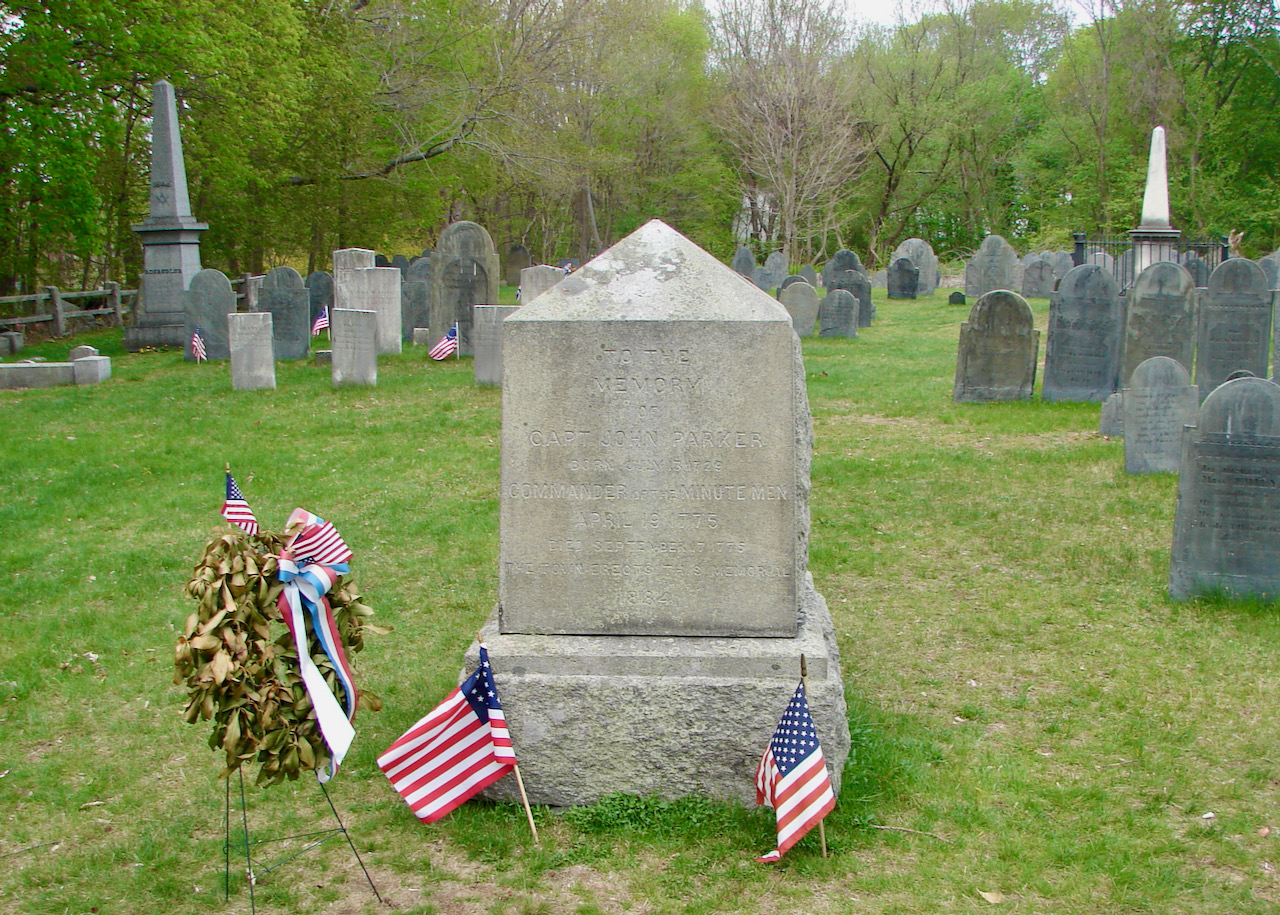John Parker was a Lexington, Massachusetts, native, born July 13, 1729. A farmer, mechanic, and town officer, he, and his wife Lydia Moore Parker had seven children. His grandson, abolitionist Theodore Parker, described him as “a great, tall man, with a large head, and a high, wide brow.”
His military experience during the French and Indian (Seven Years) War, at the Siege of Louisburg, in 1758, and the Battle of the Plains of Abraham, in 1759 contributed to Parker’s election as militia Captain for the town of Lexington, placing him at the center of events on April 19th, 1775.
Informed that a British column was moving from Boston to Concord to destroy the stockpile of military supplies stored there, Parker, suffering from tuberculosis, rose from his sickbed to walk two miles to the Lexington Green. Here, he joined fellow militiamen to await the British. As they approached, wishing to avoid a confrontation he is attributed with declaring, “Stand your ground. Don’t fire unless fired upon, but if they mean to have a war, let it begin here.” His order to the militia to disperse was either unheard or ignored. When a shot rang out, from unknown origins, both sides began firing. Eight of Parker’s men, including his cousin Jonas Parker, were killed. Another ten were wounded.
As the British proceeded their march to Concord, the Lexington militia regrouped along the road the British would take on their way back to Boston. “Parker’s Revenge” the site where they lay in wait, hiding behind rocks and trees to ambush the British was located and mapped by archaeologists in 2017. The ambush was part of the long string of attacks by American militia and minutemen inflicting heavy casualties. They killed 79 British soldiers and wounded 174, losing 49 themselves over the course of the day.
Parker would not live to see the culmination of the revolution he helped start at Lexington and Concord. On September 17, 1775 he died at age forty-six and is buried in Lexington’s Old Burying Ground.
Although there are no known likenesses of him, the statue The Lexington Minuteman, erected in 1900, is said to be modeled after Parker.

